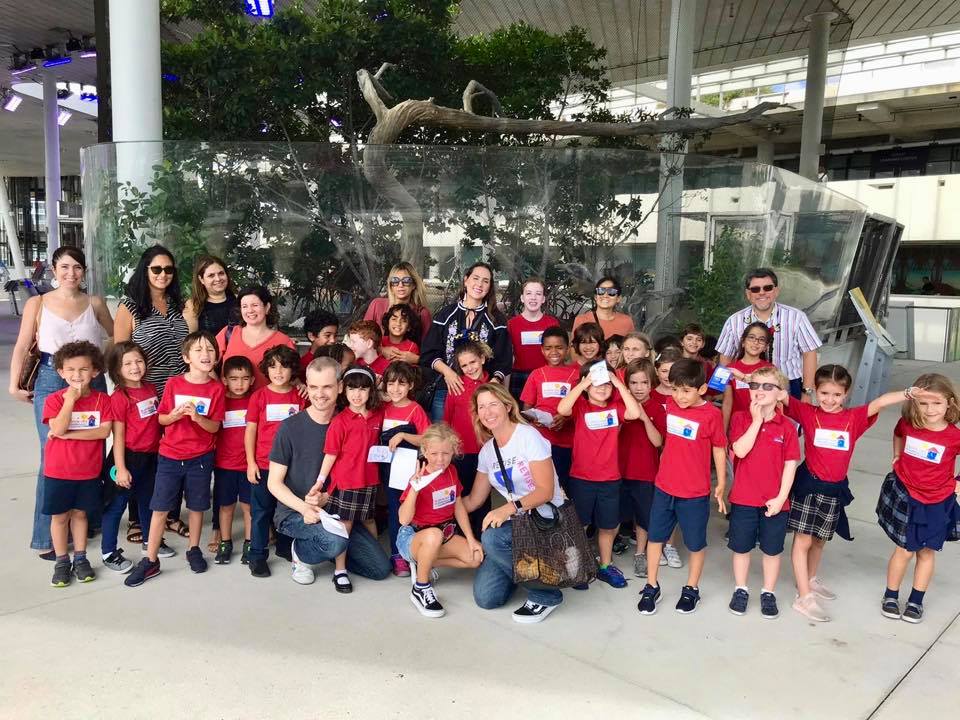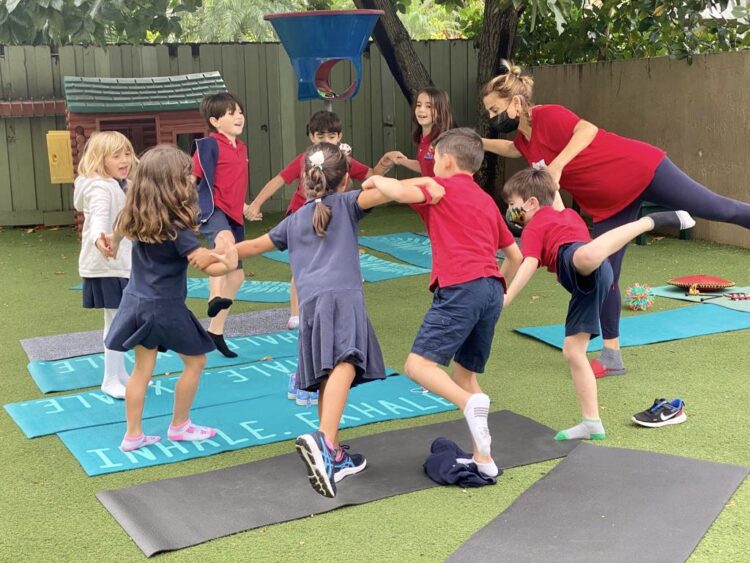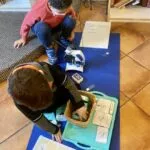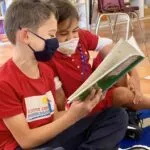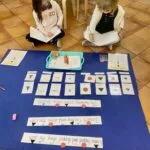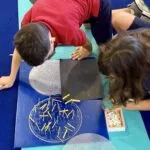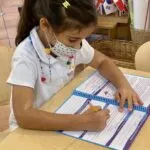New Research Shows Montessori Elementary Students May Be Ahead of the Curve in Intellectual and Social Development
Montessori Elementary students may actually be ahead of the curve in intellectual and social development, new research shows.
“Montessori pedagogy is better for humans than is the common model,” says Angeline Lillard, who led the 2021 studies on the Association Between Montessori Education in Childhood and Adult Wellbeing and another on Standardized Test Proficiency in Public Montessori Schools. “And, since it is over 100 years since people began implementing Montessori, it has been beta-tested — we know how to implement this pedagogy and are doing so all over the world. More people should know about it.”
Elementary children have a higher emotional capacity and ability to retain information, making a Montessori Elementary program the perfect environment for them.
Consistent with the Montessori philosophy, scientific research by Lillard has shown that:
- Children can learn very well from and with peers; after age 6 children respond well to collaborative learning situations.
- Children thrive on order, routine, and ritual.
- Extrinsic rewards reduce motivation and level of performance once the rewards are removed.
- Children thrive when they feel a sense of choice and control.
- Children learn best when they are interested in what they are learning about.
Social Benefits of Montessori Elementary Classrooms and Testing Proficiency Results
Montessori schools tend to outperform their districts, Lillard found in a study she conducted with Allyson Snyder and Xin Tong. The paper compared test scores from 195 Montessori schools to their surrounding districts and discovered that Montessori schools performed better in reading at the third grade.
According to the researchers, a Montessori curriculum also improves childhood and adult social and psychological well-being by emphasizing activities that promote:
- Self-determination. Children in Montessori classrooms choose their own work most of the time and feel in control of their own education.
- Meaningful activities. Montessori children only participate in activities for which the underlying reasons are clear.
- Social stability and cohesion. Classrooms span three years during which children have the same teacher and peer group.
Interested in More Information About Our Montessori Elementary Classroom Program?
At La Prima Casa Montessori, our mission is to foster a peaceful and nurturing environment, full of infinite experiences that will encourage the child to construct their own independence, self-confidence, responsibility, appreciation for diversity and a love of learning, using the Montessori Philosophy.
The Montessori Elementary program promotes students’ respect for natural, technical, and sociological inheritances without numbing their potential to reform, revise, and revolutionize.
Montessori students are “set free” to attain their full potential for academic achievement. Order, social responsibility, and emotional intelligence help sustain a learning environment in our Montessori Elementary classrooms.
To learn more about La Prima Casa Elementary program, please call us at 305-854-8001 and schedule a tour. It will give you a chance to witness the Montessori philosophy in action and see why it is that La Prima Casa alumni consistently move on to Miami’s top schools and gifted programs!

